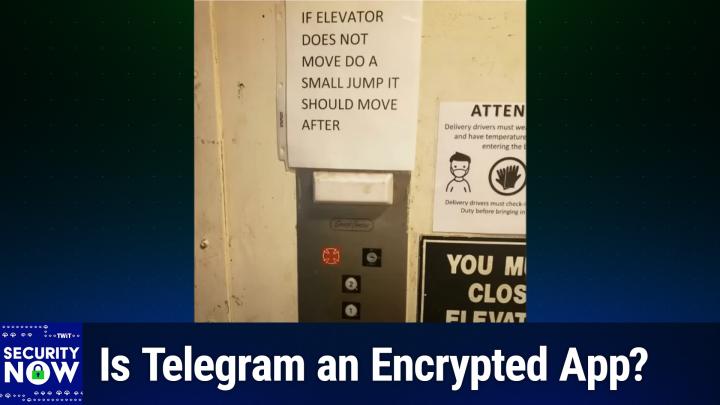Is Telegram as Secure as You Think?
AI created, human edited.
Telegram, the popular messaging app boasting over 500 million users, has long been touted as a secure and encrypted communication platform. However, recent events, including the arrest of Telegram's founder Pavel Durov in France, have raised questions about the app's true level of security. In the latest episode of the Security Now, Steve Gibson and Leo Laporte delve into the complexities surrounding Telegram's encryption and the implications for user privacy.
The discussion centers around a thought-provoking blog post by Johns Hopkins University cryptographer Matthew Green, who challenges Telegram's claim of being an "encrypted messaging app." Green argues that while Telegram does offer some encryption features, it fails to provide the level of security expected from a truly end-to-end encrypted messaging service.
One of the main issues highlighted is Telegram's lack of default end-to-end encryption. Unlike industry-standard apps like Signal and iMessage, which provide always-on, end-to-end encryption for all conversations, Telegram requires users to manually enable "Secret Chats" for each individual conversation. This feature is limited to one-on-one chats and is not available for group conversations with more than two participants.
As a result, the vast majority of Telegram conversations, including all group chats, are visible to Telegram's servers. This means that while Telegram may not be actively monitoring user content, the data is still accessible to the company and potentially vulnerable to third-party access or government requests.
Furthermore, Telegram's custom-built encryption protocol, MTProto 2.0, has faced scrutiny from cryptography experts. Green points out that the protocol is unusual and lacks the extensive peer review and testing that other industry-standard encryption protocols have undergone. This raises questions about the true security of Telegram's encryption and whether it can withstand sophisticated attacks.
Gibson and Laporte explore the potential reasons behind Telegram's popularity, suggesting that its broadcast and large group chat capabilities may be the primary draw for many users. However, they caution that this popularity may lead users to wrongly assume that Telegram offers strong privacy and security, when in reality, its encryption model falls short of the expectations set by other secure messaging apps.
The hosts also touch on the recent arrest of Pavel Durov and the broader implications for encrypted messaging. As governments grapple with the challenges of balancing privacy, security, and law enforcement needs, the future of end-to-end encryption hangs in the balance. The Telegram controversy serves as a reminder of the ongoing debate surrounding these issues and the need for users to be informed about the true security of the apps they rely on for private communication.
While Telegram may offer some encryption features, it is essential for users to understand the limitations of its security model. As the discussion on Security Now reveals, Telegram's encryption falls short of the standards set by other secure messaging apps, leaving users potentially vulnerable to privacy breaches. To dive deeper into this critical topic and hear the full conversation between Steve Gibson and Leo Laporte, be sure to listen to the latest episode of Security Now.
